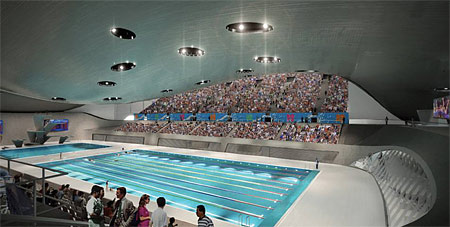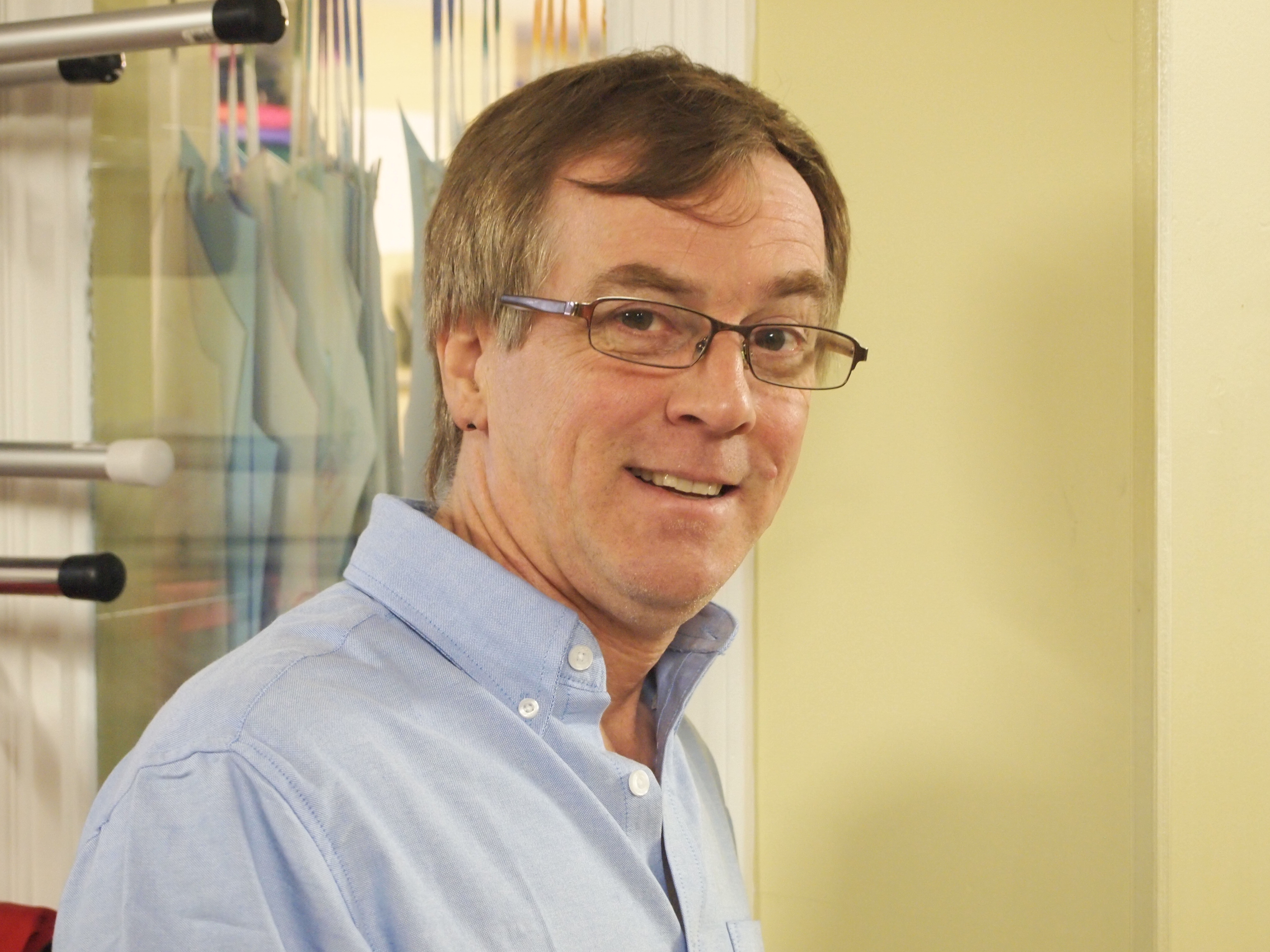NBC Gears Up for Olympics
The professional video industry's #1 source for news, trends and product and tech information. Sign up below.
You are now subscribed
Your newsletter sign-up was successful
LONDON: The 2012 Summer Olympics begin in London on July 27, and once again NBC is getting ready to broadcast the games to America via television and the Web.
To do the job, NBC is dispatching about 1,500 people to the U.K. They'll be working in 65,000 square feet of space inside the International Broadcast Centre/Main Press Centre (IBC/MPC) at the Olympic Park, plus various event and non-event venues in and around London.
"You can't see much from our studios in the IBC," said Terry Adams, NBC's vice president of IBC Engineering. "So we'll have to manufacture that illusion with our British-themed sets."

During the London 2012 Games, the Aquatics Centre will be the venue for swimming, diving, synchronized swimming and the swimming element of the Modern Pentathlon.BC SETUP
Given that this is the seventh consecutive Olympics covered by NBC, the network has the process down to a fine art. This time around, NBC will do the job using two studios and associated control rooms. There will also be a video ingest facility, playout/transmission center, and multiple editing suites in its IBC space.
"Our production resources—including remote venue sites—are split about 50/50 between London and 30 Rock," Terry Adams told TV Technology. "Theoretically, we could do most of the work in the States, but doing so much in London allows our people to have access to the athletes, the sites, and the feeling of the Games. That's a pulse you can't get by doing everything back in New York." (Some content will be edited in New York.)
NBC's two IBC studios will each be equipped with five new Sony HDC-2400L cameras. (The main studio will have a Barco video display wall.) The HDC-2400L is a 3-chip 2/3-inch CCD 1080i/720p camera that uses Sony's new 16-bit DSP technology and transmits signals via 3G fiber. In addition, "we are using Sony DVS-7000 digital switchers, EVS equipment for replays, and editing with Avid Media Composer and Nitris systems," Adams said. "Storage will be done on Avid Unity ISIS servers, with near-line storage on Omneon Media Grid servers."
For the 16 venues, NBC will be using Sony HDC2400L cameras, in both studio and hand-held configurations. Sony's PDWF800 XDCAM camcorders will be used for ENG operations. All of NBC's cameras—ENG, studio and RF—will be fitted with Canon lenses. ENG and RF cameras will be powered with batteries supplied by Anton Bauer.
"We will have eight of the HDC-2400L camera heads configured as RF handheld cameras," said Chip Adams, NBC's vice president of Venue Engineering (no relation). "We'll have four systems at the Gymnastics venue, two at the Aquatics venue and two at the main Olympic stadium for Athletics." For the opening and closing ceremonies, NBC will increase the RF camera count at the main Olympic stadium to four systems.
"We are using RF cameras at these venues, because the sports federations prefer them to cameras with cables and the associated cable pullers," Chip Adams explained. "The space around the field of play is crowded with athletes and officials, so we try to minimize the number of people and trip hazards, so as not to interfere and/or cause safety issues for the participants."
The network's entire video production infrastructure will be connected and managed by an Avid PAM (Production Asset Management) system, integrated with an Avid MAM (Media Asset Management) system. "Together, the PAM/MAM combination allows us to have a single ingest point that serves many output points," said Terry Adams. "It allow us to achieve the ideal of 'record once, use many'; instead of different units all making their own recordings and working with those. This saves us time and resources—and reduces the need to haul disks and archive tapes from previous Games to London."
To be precise, NBC is taking its Beijing Olympic video highlights to London, since the network believes that these will be the most called for. But highlights from earlier Olympics will be drawn directly from their LTO-5 tape archives in New York.
Meanwhile, live video will be transmitted between New York and London using a mix of satellites and four OC-48 (2.488 Gbps) fiber links provided by AT&T. "We are relying heavily on IP this time around to move traffic," said Terry Adams. "But we are using satellites in addition to fiber cables for one simple reason: We don't like to put all our eggs in one basket."
NBC has also signed a deal with YouTube for it to provide the video player on NBCOlympics.com, which will carry some 3,000 hours of the network's Olympic coverage. The site will include live competitions, interviews, segments about London, and web exclusive features. YouTube will also promote NBCOlympics.com to its attractive young demographic on its homepage.
As for 3D? "NBC will be passing through Olympic Broadcast Services, which will be produced using Panasonic 3D equipment and made available to cable, satellite and telco providers," Terry Adams said. "We will not be producing it ourselves."
EASIER BUT MORE EXPENSIVE
With 12 Olympics under their belts, NBC's Olympics' producers are well-prepared to tackle the London Games. "Still, the secrecy around the Opening Ceremonies is always a concern," said Terry Adams. "It makes it difficult for us to site our cameras as optimally as we'd like to."
That said, the relative closeness of London to New York—compared to Beijing—has made it easier for NBC to get its equipment and people in place. Then there's the shared English language and the small time zone difference; again when compared to China. For NBC, setting up for the 2012 London Games has proven to be a simpler and less bureaucratic process than was the case in Beijing four years ago.
"The only problem is the cost," Terry Adams said. "Even with factoring in exchange rates, things are very expensive in London. Add the rigorous fire codes and other standards, and it is quite costly for us here. So yes, we are glad the 2012 Olympics are so much closer to home—but there are budget challenges."
Cost notwithstanding, David Mazza, NBC Olympics' senior vice president of Engineering is looking forward to the Opening Ceremonies on July 27. "Most of us around here are far happier executing the games than we are planning them," he explained. "So we are very excited to be finally getting so close to deploying in London."
The professional video industry's #1 source for news, trends and product and tech information. Sign up below.
James Careless is an award-winning journalist who has written for TV Technology since the 1990s. He has covered HDTV from the days of the six competing HDTV formats that led to the 1993 Grand Alliance, and onwards through ATSC 3.0 and OTT. He also writes for Radio World, along with other publications in aerospace, defense, public safety, streaming media, plus the amusement park industry for something different.

